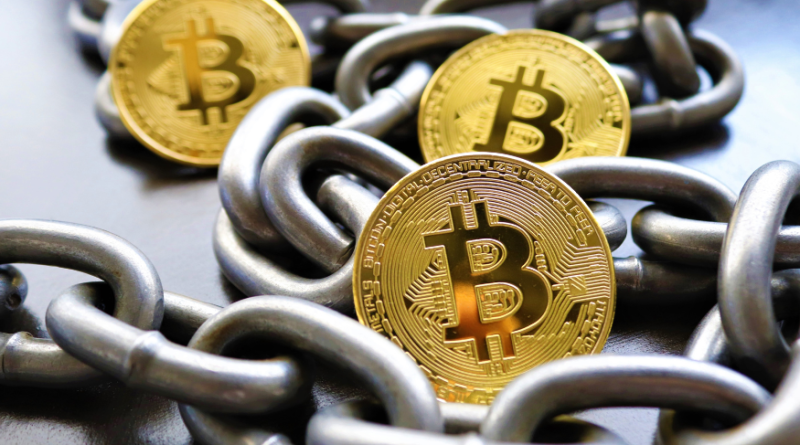DeFi Regulation : Why and How to Regulate Decentralized Finance (DEFI)
Decentralized finance (DeFi) has emerged as a revolutionary force in the financial world, offering unprecedented opportunities for financial inclusion and innovation. However, the lack of regulation in this space raises significant concerns. Should DeFi be regulated, or should it remain in its current decentralized state? Let’s dive into the debate.
Table of Contents
- Introduction
- Pros of DeFi Regulation
- Cons of DeFi Regulation
- Current State of DeFi
- Future of DeFi
- How to Regulate Decentralized Finance : the FAQ
Introduction
Decentralized finance, or DeFi, refers to financial services and products that operate on a blockchain or similar distributed ledger. Unlike traditional finance, DeFi operates without intermediaries like banks or brokers. This decentralized nature has led to rapid growth and innovation, but it also raises questions about regulation.
Pros of DeFi Regulation
Enhanced Security
One of the primary arguments for regulating DeFi is enhanced security. Decentralized systems are often vulnerable to hacks and exploits. Regulation can introduce standards and oversight to mitigate these risks. For instance, the Securities and Exchange Commission (SEC) in the U.S. has proposed rules to protect investors from fraudulent schemes.
Consumer Protection
Regulation can also provide a safety net for consumers. DeFi platforms often lack the transparency and accountability of traditional financial institutions. Regulators can enforce rules on disclosure, transparency, and consumer protection. For example, the European Union’s General Data Protection Regulation (GDPR) ensures that user data is handled responsibly.
Stability and Trust
Regulation can foster stability and trust in the DeFi ecosystem. By setting clear guidelines and standards, regulators can prevent market manipulation and ensure fair competition. This stability is crucial for attracting more users and investors, who may be hesitant to participate in an unregulated environment.
Cons of DeFi Regulation
Stifling Innovation
One of the main concerns with regulating DeFi is the potential to stifle innovation. The decentralized nature of DeFi has driven rapid advancements in financial technology. Regulation could slow down this progress by introducing bureaucratic hurdles and compliance costs. For example, the U.S. Securities and Exchange Commission (SEC) has been criticized for its slow and inconsistent approach to regulating DeFi, which has deterred innovation.
Censorship and Control
Regulation can also lead to censorship and control. Centralized authorities may use regulatory measures to suppress certain activities or technologies. This could limit the freedom and autonomy that DeFi aims to provide. For instance, China has banned DeFi activities, citing concerns over market stability and security.
Geopolitical Risks
Regulation can introduce geopolitical risks. Different countries have varying approaches to regulating DeFi, which can create inconsistencies and barriers for global users. This fragmentation can hinder the growth and adoption of DeFi on a global scale. For example, the U.S. and Europe have different regulatory frameworks for cryptocurrencies, which can complicate cross-border transactions.
Current State of DeFi

Adoption and Growth of Defi
Despite the regulatory uncertainties, DeFi has seen remarkable growth. According to a report by the DeFi Pulse, the total value locked (TVL) in DeFi platforms reached over $100 billion in 2021. This growth is driven by increasing adoption, with more users and investors exploring DeFi’s potential.
Challenges and Issues of Defi
However, the current state of DeFi is not without challenges. Security breaches, regulatory ambiguities, and market volatility are some of the issues that DeFi platforms face. For instance, the DeFi protocol Yearn.finance suffered a hack in 2020, resulting in a loss of over $30 million. Such incidents highlight the need for robust regulation to address these challenges.
Future of DeFi
Evolving Regulation
The future of DeFi will likely see evolving regulation. As the technology matures, regulators will need to adapt their approaches to balance innovation and protection. For example, the European Union’s Markets in Crypto-Assets (MiCA) regulation aims to provide a comprehensive framework for DeFi, balancing innovation and consumer protection.
Innovation and Compliance
DeFi platforms will also need to innovate to comply with regulatory requirements. This could involve developing new technologies, such as decentralized identity solutions, to ensure compliance without compromising on decentralization. For instance, the DeFi protocol MakerDAO has been working on integrating with traditional financial systems to comply with regulatory standards.

How to Regulate Decentralized Finance : the FAQ
Is regulation necessary for DeFi?
Regulation can provide enhanced security, consumer protection, and stability. However, it also stifles innovation and introduces geopolitical risks. The need for regulation depends on the specific context and the balance between innovation and protection.
How does regulation affect DeFi innovation?
Regulation can slow down innovation by introducing bureaucratic hurdles and compliance costs. However, it can also foster innovation by providing a clear framework for development. The key is to find a balance that encourages innovation while ensuring protection.
What are the main challenges in regulating DeFi?
The main challenges include ensuring consistency across different jurisdictions, addressing security concerns, and balancing innovation with protection. Regulators face the daunting task of keeping up with the rapid advancements in DeFi technology.
How can DeFi platforms comply with regulation?
DeFi platforms can comply with regulation by developing new technologies, such as decentralized identity solutions, and integrating with traditional financial systems. This approach ensures compliance without compromising on decentralization.
What is the future of DeFi regulation?
The future of DeFi regulation will likely see evolving approaches as the technology matures. Regulators will need to adapt their frameworks to balance innovation and protection. DeFi platforms will also need to innovate to comply with regulatory requirements.

